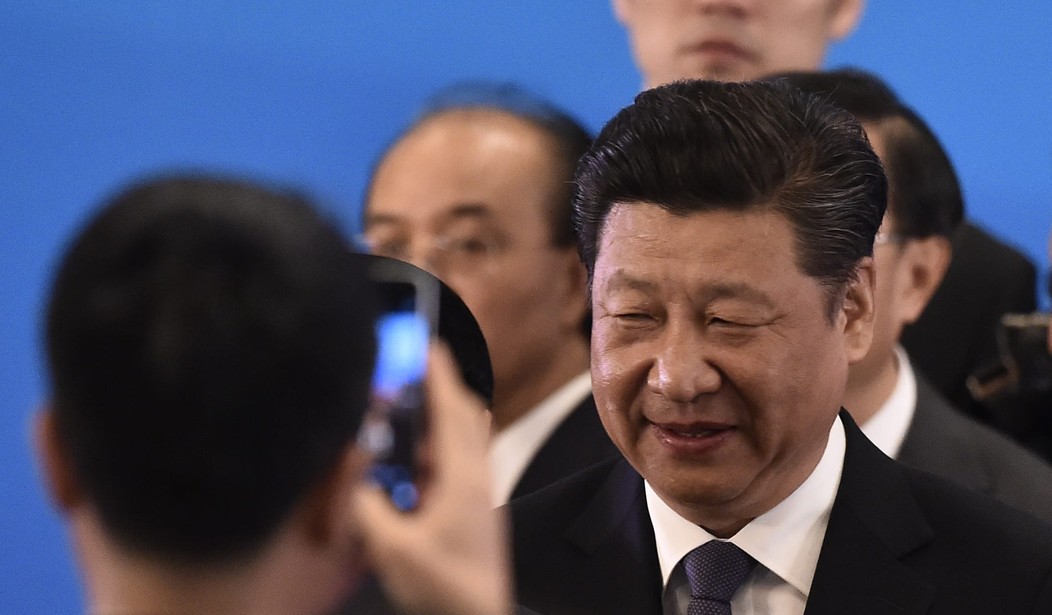If you think this is a followup to Monday’s “The Next Revolution in China” piece — you’re right.
And what a followup we have, thanks to the Observer’s Jonathan Russo, who says that China’s “land mine of debt is about to explode.”
Read:
Even the ratings agencies, like Moody’s, are negative. The Wall Street Journal, both the NY (Times) and Financial Times, Bloomberg and Forbes are all covering the story. Private hedge fund reports (see Kyle Bass), predicting China’s economic collapse, circulate among the investing classes by email, the way Russian Samizdat reports in the 1970s circulated hand to hand. The coup de grace however might be the Economist Magazine’s May 7 issue with its 13-page special report on China’s land mine of debt and what happens when it blows up. It is must-reading for anyone with skin in the economy.
When you understand Xi’s dilemma, you understand everything Xi does. He knows more about China’s problems than you.
The explosion Xi prepares is already felt. According to a top commodity producer quoted in the Financial Times about Chinese trade policy, “This is war. This is not trade.”
American politicians, starting with Donald Trump, but quickly followed by Bernie Sanders and belatedly Hillary Clinton, are preparing their counter-attack strategies. China’s number one export is not steel, electronics, textiles or toys… It is deflation. China is dumping everything from finished steel to appliances. Just walk into Best Buy and you’ll see a wall of Chinese-made air conditioners priced so low it is clear no one is making money. In fact, a good friend of mine, who is in the commodity business and visits China at least 12 times a year, said the air conditioner factories cannot pay their suppliers or truckers in cash. They’re paid with air conditioners.
30-some-odd years ago, Saturday Night Live did a John DeLorean sketch where the beleaguered automobile entrepreneur (Brad Hall) was in so much debt that he was trying to pay Dave the dry cleaner delivery guy (Eddie Murphy) with DeLorean cars instead of cash. It wasn’t a great sketch by any means (it was from SNL’s Dark Days when Dick Ebersol ran the show in Lorne Michael’s absence), but it did reveal an essential economic truth about desperate times:
John DeLorean: “Dave, how would you like the keys to a brand new silver DeLorean? How about that?”
Dave the Dry Cleaner: “You gave me a silver one last week.”
DeLorean: “How about electric blue?”
Dave: “I got electric blue two weeks ago… I got five of your cars, man. They don’t work and nobody gonna buy them. I’d rather have the $13.50.”
[Dave takes the clean clothes back and leaves.]
But in Communist China, Dave can’t just walk away with the goods.
China exported its way to semi-prosperity by providing cheap goods to debt-happy consumers in the West. But for a huge country like China, that path is a dead end because there are only so many consumer goods that the rest of the world, even debt-happy Americans, can absorb.
A smaller country like Israel or South Korea can probably export their way to ever-increasing wealth for just about ever. But China had over a billion people — almost one-fifth of the entire human population — to lift up out of dirt-scratching poverty. The Export Gravy Train can carry only so many people, only so far.
Beijing has been trying to convert from an export-driven economy to a consumer-driven economy like our own, but it hasn’t worked as planned. Corruption, thrift, and a lack of consumer confidence have kept Chinese saving instead of spending. So China keeps cutting export prices — “exporting deflation,” as Russo and others have put it — in an attempt to do three things:
1. Keep the factories humming.
2. Keep the jobs machine creating jobs.
3. Keep the Chinese Communist Party in power.
Back to Russo for a moment:
This exporting of heavily subsidized commodities and manufactured goods buys Xi and China time. Time to inject trillions of renminbi into China’s rust belt as he has just promised to do. No pesky fiscal conservatives in his congress to oppose an industry bailout. Xi is determined to ward off the social unrest that will follow the debt blow up.
That’s how a real-world Chinese air conditioner factory finds itself doing a tragic imitation of Brad Hall’s unfunny imitation of John DeLorean’s cocaine-fueled imitation of a profitable carmaker.
And if you’re a supplier to the air conditioner factory, what can you do? Like Dave the Dry Cleaner, you’d really rather have the $13.50. And in a free economy, you’d tell the air conditioner factory owner to go get stuffed — he’s not getting any more of your condenser units until he ponies up the cash. But Xi can’t allow that kind of disruption, and so you, the condenser manufacturer, agree to take payment in air conditioners instead of in cash. As does the guy who makes the logic board for the control panel, and the other guy who makes the power supply.
Pretty soon there are air conditioners everywhere, but nobody anywhere has the damn $13.50 they’re owed.
When you’re up to your ass in air conditioners, it’s difficult to remember your initial objective was to heat up the economy.
Repeat this same situation across hundreds (thousands?) of businesses across China’s newly wealthy coastal regions, and you’re looking at the potential for an economic clusterfudge that could make 2007-08 feel like the Reagan years.
So it might be warm weather now, with plenty of demand for air conditioners. But in China, as elsewhere, winter is coming.










Join the conversation as a VIP Member